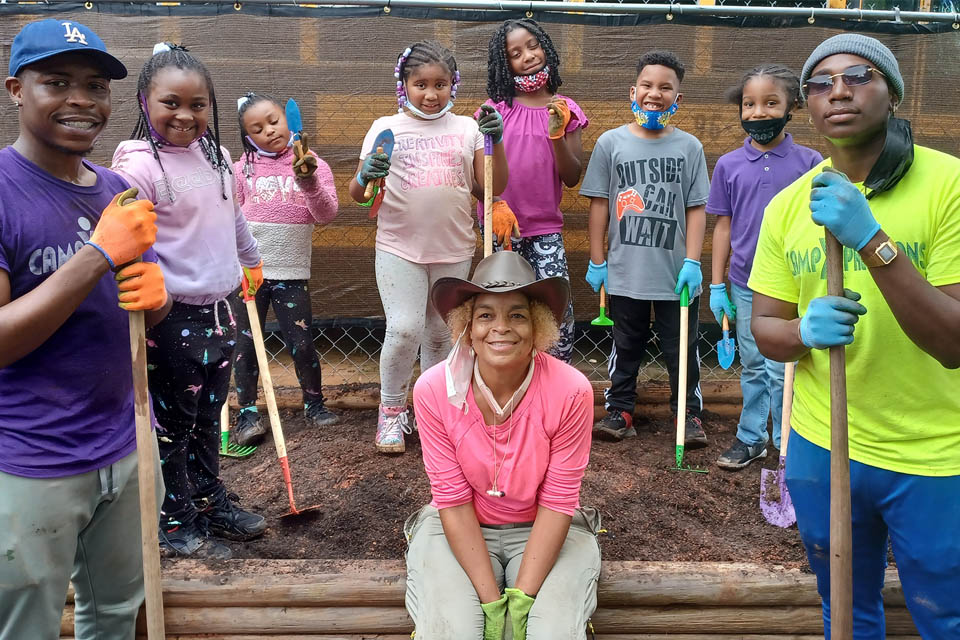The scent of autumn is in the air, and with that comes the smell of funnel cakes, kettle corn, and cotton candy. Why? Because the Georgia State Fair is in town!
The fair is a must-do event during the fall! One of the best ways to celebrate the season is to spend a day playing games, experiencing rides, watching animals, and eating delicious fair food.
One of the ways the Youth Life Center is celebrating the season is by teaming up with two urban farms! That’s why we want to talk about how we want to help meet the youth of Atlanta’s needs through garden-based learning experiences!
It is captivating to witness a child raise a marigold from a seed s/he has planted, or watch a teenager plant and help harvest the fruits of their labor. You might be surprised at how many different skills you can gain from interacting with plants.
1. Plant Care Fosters Responsibility
Taking care of plants can develop responsibility in teenagers, whether it’s for flowers or vegetables. Their self-esteem and sense of accomplishment increase when they transform young sprouts into full-grown beauties.
From a small bushel of wildflowers to parsley or carrots, plants require sufficient sunlight and water, but also have individual needs. Choosing what works best for each plant is something teens can experiment with and learn through experience over time.
2. Builds Transferable Skills
Planning projects and making decisions collectively requires a variety of skills: communicating ideas and considering others’ ideas; reaching compromises, working together, and resolving problems; all of these skills will be valuable to all those involved in the future, regardless of the project or situation.
3. Increases nutritional awareness
As a result of participating in garden-based learning programs, youth consume more fruit and vegetables and are more enthusiastic about fresh, nutritious vegetables. That is because tasting the fruits of their efforts inspires them to eat more of the items they grow themselves.
Even a backyard garden or a tomato plant in a container on the patio is an excellent way for health-conscious youth to ensure what they eat is organic and encourages them to think more about where their food comes from.
4. Improves Psychological Well-Being
Horticulture therapy is often used in therapeutic programs for teens to improve mental health using plants.
Breaking teens’ addiction to electronics and social media can also increase their attention spans. It has been shown that green spaces with trees, grass, and plants improve the attention spans of children with and without ADHD.
Simply spending 10 minutes outside among trees, grass, and plants can improve a teen’s focus and concentration. Your teen might be able to concentrate better when they get back to work if they help weed, prune shrubs, or water plants.
5. Offers a Great Way To Connect
Horticulture therapy is a great tool to help youth bond with each other in a way that doesn’t involve arguing. If you have the space at home, dedicating a small portion of the yard (or a few plant pots if ground space isn’t an option) is a great way to encourage a healthy connection. If neither of those is an option, reach out to groups such as Youth Life Center to find a community garden in your area.
Don’t forget to check out Youth Life Center’s many other amazing programs and resources to get involved with this autumn—such as the Fall Break Camp. The camp will be running from October 12–15 from 6:30 AM to 6:00 PM and includes STEAM activities, fall-themed arts & crafts, and an adventure air sports field trip all for $85 (plus the field trip). Breakfast, lunch, and snacks will be provided. Contact us at 770-272-5086 or go to youthlifecenter.org for more information.







